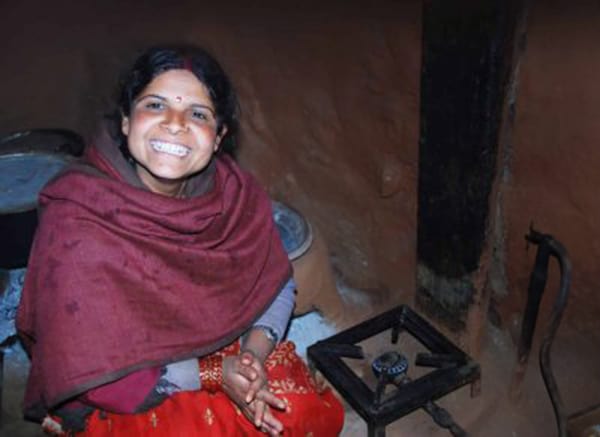
Beryl Hartmann had just begun an internship with ADRA in Nepal when she encountered a woman who changed the course of her career. Beryl shared with us the story of a teacher and community leader in one of Nepal’s many disadvantaged, rural communities who is empowering people to change their world for generations to come.
For more than a decade, Niruala Shrestha and her community have devoted themselves to creating a brighter future for their children. It hasn’t been business leaders or even community elders who have driven this vision forward–but women like Niruala, who’ve kick-started change from the ground up.
Nala, Beryl told us, was a region without hope. The community’s agricultural backbone had been exploited by the corporations of Kathmandu. Families went hungry, children were denied an education, and the women were abused. Sadly, it was the women of Nala who suffered the most.
“But she’s more than a teacher,” Beryl said. “Niruala leads a women’s cooperative in planning, funding, and implementing a raft of community-driven improvement programs.”
It started with literacy and health education, before ADRA introduced training in agricultural and financial skills, helping families in Nala to achieve a more substantial and stable income. In many cases it was the women who benefited most; the skills they learned unlocked an equality they’d never had before.
ADRA then helped farmers diversify crops and increase productivity. A collection center, which served as a community-owned and operated wholesaler, was established, enabling the community to demand higher prices for their produce and taking away the bargaining power of the big grocers from Kathmandu. During the harvest season, up to 20 truckloads of produce would be purchased from this center each day.
Then ADRA introduced microfinance training and established a women’s savings club, which soon grew to more than 1,000 members, leading to the establishment of a women’s cooperative group
It is this cooperative, with the support of ADRA’s ongoing leadership training, that Niruala is driving to improve Nala and the lives of its people. Some of the changes the collection center and cooperatives have generated in Nala are obvious–things such as new toilets, family-owned scooters zipping about as they do business, and children smiling as they walk to school. But some of the most important changes risk going unseen, because what you don’t see is the fact that the women of Nala have discovered economic freedom.
Thanks to ADRA’s training and their own commitment to change, women like Niruala have taken out life-changing loans or won grants to start and grow their businesses.
In many cases, the women are becoming the breadwinners of the family! What an amazing change.But more than providing freedom from poverty, this type of empowerment has freed the women from something far more troubling–abuse. You see, before ADRA came to Nala, almost every married woman had experienced abuse. Today, not one woman in Niruala’s community is beaten by her husband
Why? Because despite still not experiencing cultural equality, the women of Nala have economic power; they are the only ones who can access loans from the women’s savings cooperative. The men know it–and they love it. At last, the women of Nala are seen as valuable and abuse has all but disappeared. We can praise God for that!